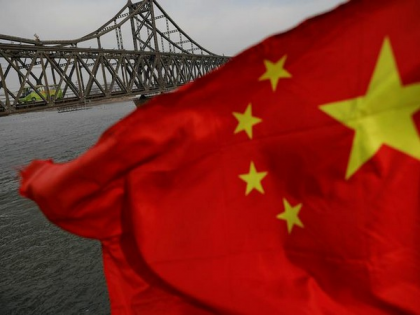UK Deputy PM demands China explain redacted 'Super-Embassy' plans amid security, human rights concerns
By ANI | Updated: August 13, 2025 14:40 IST2025-08-13T14:32:13+5:302025-08-13T14:40:01+5:30
London [UK], August 13 : The Deputy Prime Minister and Housing Secretary of the United Kingdom, Angela Rayner, has ...

UK Deputy PM demands China explain redacted 'Super-Embassy' plans amid security, human rights concerns
London [UK], August 13 : The Deputy Prime Minister and Housing Secretary of the United Kingdom, Angela Rayner, has officially requested that the Chinese government clarify why sections of its architectural designs for a proposed "super-embassy" in central London have been significantly redacted, cautioning that a lack of transparency might endanger planning approval, according to Phayul's report.
In a letter sent to the Chinese Embassy in London, Rayner insisted on either unredacted designs for the project or a comprehensive explanation regarding the redactions, which obscure critical portions of the proposed Cultural Exchange Building and Embassy House.
Clarification is sought within two weeks, establishing a deadline of August 20, just weeks before a final planning decision is anticipated on September 9, as reported by Phayul.
The redactions have raised alarms among ministers, MPs, security agencies, and advocates for human rights. Critics worry that the scale and positioning of the project could facilitate surveillance or other security threats.
Some lawmakers have gone so far as to warn that the secrecy might hide activities that are inconsistent with diplomatic protocols. The Sun tabloid, referencing unnamed officials, expressed concerns about the possibility of a so-called "spy dungeon" or undisclosed secure areas within the complex, as highlighted in the Phayul report.
Opposition to the project has been mounting since plans were initially submitted in 2018, especially among activists who contend that China's human rights violations, including its treatment of Uyghurs, Tibetans, Hong Kong residents, and mainland dissidents, render such a large, high-security complex in the centre of London unacceptable.
The controversy escalated earlier this year when Westminster councillors, based on security evaluations, advised postponing a decision until additional information became available. Rayner's involvement represents the highest level of government pressure for transparency to date.
"We cannot make a lawful and informed planning determination without clarity on what is proposed," she stated in her letter, according to reports. "The public and relevant authorities must be able to assess the implications of such a significant development in our capital," as highlighted in the Phayul report.
The Chinese Embassy has not yet provided a formal public response to Rayner's letter. In the past, it has defended the Royal Mint Court project as a legitimate diplomatic establishment aimed at "promoting mutual understanding" and "facilitating exchanges" between China and the UK. Officials have labelled allegations of espionage as "groundless smears", as revealed by the Phayul report.
If Beijing complies with the UK's demands for transparency, the Greater London Authority is expected to move forward with its final assessment ahead of the September 9 deadline.
Nonetheless, human rights organisations and civil society advocates have condemned the project, warning that it may support surveillance and harassment of exiled Chinese dissidents, Uyghurs, Tibetans, and Hong Kong activists residing in the UK.
They assert that allowing China a more substantial diplomatic presence in the capital poses a risk of enabling transnational repression on British territory.
Disclaimer: This post has been auto-published from an agency feed without any modifications to the text and has not been reviewed by an editor
Open in app